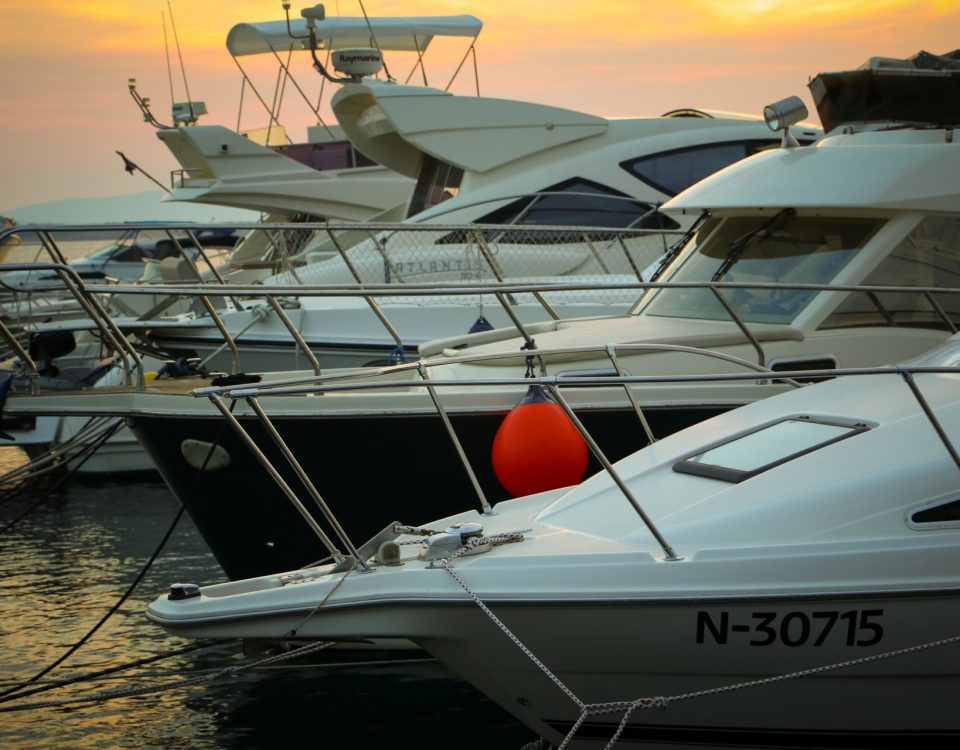Nevis/St. Kitts – A Great Place to Sail for Some Asset Planning

HOW TO DOUBLE THE VALUE OF YOUR LIFE INSURANCE
August 7, 2017
AVOIDING THE LARGE PENSION TAX TRAP
August 18, 2017If you have ever taken your boat down to the Caribbean, you have probably marveled that beauty of the beaches, the clarity of the water, and the strength of the rum cocktails at the dockside watering holes. Did you ever stop to think how these islands could LEGALLY provide you with significant protection for your business and personal wealth? With over 20 million lawsuits filed annually in the United States, all business owners, physicians, and conspicuously wealthy individuals need to protect their wealth from nuisance and legitimate claims.
As an asset protection attorney whose focus is on high net worth clients, it is our job to create structures which protect our clients’ wealth against risks that range from business lawsuits to personal creditor claims. In creating such “asset protection plans,” we often utilize offshore structures – especially for clients with significant liquid assets. Here, we will briefly describe one offshore structure we use quite often, the Nevis Limited Liability Company (“LLC”).
Traditional LLC Protection
Many smart investors place their rental property, valuable business equipment and real estate, and brokerage accounts into separate limited liability companies (LLCs) to protect that wealth from lawsuits. How do LLCs (domestic or offshore) protect wealth? If you lose a case and the creditor has secured a judgment against you, the creditor cannot seize the assets of your LLC. That creditor can only obtain a “charging order” against your LLC interest. This “charging order” limits the creditor to recovery of your share of any distributions actually made from the LLC. If you, or you and your spouse, are managing members, would you ever vote to pay distributions if you knew a creditor would be able to intercept the distributions? The answer is, obviously, no. The “charging order” does not allow the creditor to partition your interest in the LLC or vote your interest. In this way, the assets within the LLC are shielded. Only when you have decided to make distributions does the creditor get anything of value. In practicality, the plaintiff’s attorney usually recommends a “pennies on the dollar” settlement rather than asking his client to wait 25 years or more for any recovery. Some attorneys won’t even waste their time attacking LLCs. The IRS, in fact, is loath to pursue charging orders against individuals who owe them money.
Which States Have Superior LLC Laws
Many attorneys will simply establish an LLC for a client in the state in where they operate. For asset protection purposes, this can be a critical mistake. Most states do not make the charging order the exclusive remedy of LLC creditors in their state statute. Thus, a judge could grant a creditor a different remedy if he/she so chose, including dissolution – which would result in the client losing their proportionate share of the underlying asset.
While these circumstances may be rare, the above scenario is possible in some states. Superior planning dictates the use of LLCs created in states where – by statute – the charging order is made the exclusive remedy available to creditors. These are the most powerful and flexible asset protection tools in the states and ideal for owning wealth where offshore planning cannot be utilized (particularly with real estate).
Why Go Offshore
From the standpoint of litigation deterrence and protection, the benefits of offshore planning are significant. These factors are the driving force of offshore planning in the U.S. However, there are other reasons to consider international planning. These are:
- Asset Protection: Many Americans put their money offshore to protect it from present and future creditors. As we have discussed in other articles, this is a legally permissible goal, as long as the structures and transfers comply with various S. laws. Offshore planning can provide a powerful level of asset protection which domestic planning simply cannot achieve.
- Tax Planning: A common – and extremely dangerous – misconception about offshore planning is that simply by going offshore, one can avoid S. taxation. Simply put, this is dead wrong. Americans are liable for taxes on income, wherever earned. The vast majority of solid offshore asset protection plans are tax neutral – although there may be significant tax advantages gained from a number of offshore insurance structures. However, the LLC can be the underlying ownership entity of structures that do have legitimate tax benefits – such as captive insurance companies and tax-deferred annuities.
- Privacy: While proper offshore planning always includes full disclosure to the relevant S. governmental agencies, clients can gain a tremendous amount of financial privacy in offshore jurisdictions. For many individuals and families, this is a significant benefit in today’s world, where personal financial information is easily accessed through public records and through the internet.
- Investing: Today, our world is a global village. No longer are American stocks, bonds, and mutual funds the only safe, lucrative investments. In fact, the opposite may be true. Economists and financial analysts agree that most of the economic growth in the next 50 years will occur in Asia, Eastern Europe and other developing nations, like Brazil and Vietnam. Many clients use offshore vehicles to diversify their risk and enjoy better returns by investing in foreign markets and taking advantage of trends in currency exchange rates relative to the American dollar. Moreover, there are a number of provocative, perhaps superior, investment “products” available offshore that one cannot simply find domestically.
Nevis LLCs: Background
Like an LLC in any state, the Nevis LLC is a “hybrid” entity, partly like a corporation and partly like a partnership. However, more so than other American entities, the Nevis LLC has been designed to be an ideal asset protection entity.
When Nevis – a small Caribbean nation that is part of a Federation with St. Kitts – began to compete for the multi-billion (US$) asset protection business earlier in the 1990’s, it revised its trust and business entity laws. As part of this process, the lawmakers studied American LLC statutes and improved on them, in terms of providing asset protection for American citizens. The result is a superior asset protection tool used by many attorneys specializing in the field.
Why the Nevis LLC Is Better Than Its Domestic Counterpart
Like all offshore tools, the Nevis LLC acts as a powerful litigation deterrent – as most plaintiffs and their lawyers do not know how to approach getting to assets owned by foreign structures. Thus, in most cases, just by disclosing how the Nevis LLC protects a client’s assets, we can deter a possible lawsuit or settle an outstanding claim. This works in the vast majority of cases – making the Nevis LLC more attractive than its U.S. counterparts.
Nonetheless, if a persistent creditor wants to attack the Nevis LLC, he might ask as U.S. court to dissolve the structure or order assets back. However, because this entity is an LLC, with “charging order” protections like those in the United States, the courts do not have the same difficulties in evaluating foreign LLCs as they have with offshore trusts. Whereas offshore trusts take advantage of another country’s laws which differ from those of the U.S., the Nevis LLC laws were drafted to replicate U.S. laws. Clients with foreign LLCs are taking advantage of the same statutes as those in the states – an important factor in having U.S. courts respect this particular form of entity.
If a creditor cannot attack the Nevis LLC in the U.S., he could attempt to do so in Nevis. To do this, Nevis procedural laws require that he must begin a new lawsuit on the underlying claim (i.e., malpractice), post a bond of at least $25,000, and be forced to hire a Nevis lawyer on an hourly basis because Nevis does not permit American lawyers to practice in their jurisdiction and does not permit attorney fees on a contingency basis. Hence, we have yet another reason why Nevis LLCs deter lawsuits. How would a U.S. attorney feel about the prospect of losing fees from the case to a foreign lawyer? They would rather settle the case or drop it entirely.
Suing in Nevis is a time-consuming, expensive and unfamiliar process. It is not surprising, therefore, that we have yet to see a creditor make such a successful attack.
- Tax Benefits
The Nevis LLC is tax neutral, like a domestic LLC. In terms of estate planning, the LLC can be used a part of a gifting program to move value out of a couple’s estate by moving ownership units to children. This can be accomplished while the clients (parents) maintain 100% control of the LLC.
- Funds Offshore Are Secure & Invested Wisely
Funds held by Nevis LLCs can be housed in some of the world’s largest banks (i.e. Barclay’s) and invested in grade AAA investments (i.e., Swiss Annuities). Thus, clients can sleep well, knowing their savings are safe and growing.
Case Study: “Protected Howard” Settles Claims for Pennies
Howard, a general client, is well-respected in his community. While he had been sued before (he never lost), Howard recently heard of a claim $1 million over coverage limits being made successfully against a colleague. He decided to engage an asset planning strategy.
Howard set up a wealth preservation plan, part of which involved transferring his non-pension liquid assets to a Nevis LLC. The LLC then established a bank account, through which he then purchased a high-grade tax-deferred variable annuity from a multi-billion dollar Swiss insurance company.
When Howard was later threatened with lawsuits, he no longer worried about losing what he’d already earned. Instead, Howard now feels secure, knowing that his most important assets are safe from all creditors, and that he is no longer at the mercy of the lawsuit and the legal system.
Challenges
As with any offshore tool, the challenge in implementing strategies for your clients is to have the process go smoothly and for the funds invested through the structure to be secure. We have the contacts at offshore fiduciary firms, banks, insurance companies, and investment houses to assist you in this process. This will make all the difference in moving into the cutting-edge and niche of offshore planning.
While many U.S. asset protection experts are using Nevis LLCs in place of offshore trusts, there are still instances where the trust may be preferable, particularly when estate planning is a priority. Nonetheless, for achieving a wide variety of financial or legal objectives, the Nevis LLC is an alternative structure for offshore financial planning that should always be considered.
It must also be noted that operating an offshore entity also means that American residents and citizens must report all income from the operation of this entity. American tax law requires that Form 8938 and a Foreign Bank Account Report (“FBAR) be filed annually with few exceptions. Hence, placing assets offshore does not mean that one can hide offshore income from American tax authorities.
Before you set sail or take the yacht for a nice Caribbean cruise or dive adventure, consider setting up your asset protection plan first and, maybe, that trip will be a business trip for your annual meeting for your LLC as well.




